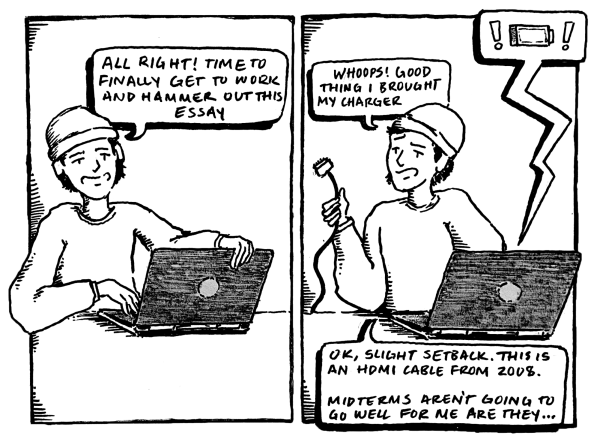PAL Program Feels Like Just Another Responsibility
I went to a very fast-paced high school, the kind of place that prided itself on attracting and accepting the “best and brightest” of Chicago’s youth. It’s consistently ranked within the top five public high schools in the nation. Academically rigorous, classes were usually one of two distinctions: Honors or Advanced Placement. The culture was geared toward perpetual achievement, the kind that former Mayor Rahm Emanuel made a point to acknowledge during his victory tour of Chicago when he left office.
By my senior year, I was looking forward to a new start. Coming from burnout and exhaustion of high school, I was hoping for a slow transition and easy-going start to college. That’s when I encountered Oberlin’s Peer Advising Leaders program. Designed to serve as an introduction to college life, it helps direct students to resources, provides a cursory overview of college academics, and facilitates exposure to other first-years through cohort groups. The idea was brilliant for the energetic and inspired, the ones who are eager for college life.
But for those of us who were left disenchanted by the high school experience, it would’ve been nice to hit the pause button. Is it really necessary to start meeting over the summer if there are going to be cohort meetings during the school year? Both my parents work full-time jobs, so I only got to see them in the evenings at home; the virtual PAL meetings cut into our precious time together before I left for Oberlin.
When I arrived on campus, I was immediately inundated with obligatory happenings, along with job training, and started school immediately after. PAL was an additional commitment with its meetings before the start of the school year, mandatory orientation events, and 8 p.m. one-credit class sessions. It started to feel less like a constructive experience and more like just another responsibility. For me, it was a lot at once and as the first semester progressed, I had to balance Introduction to Oberlin Life and Learning classes with homework assignments and work shifts.
The PAL program promised to launch me into college preparation, but I had spent the past four years doing just that. Much of the heart of the matter, the guidance itself, seemed to be of little use. I, and most of my fellow cohort members, already knew how to write emails, engage in class discussions, and use Google Suite. Entire class periods just for these activities seemed rather unnecessary. I think PAL academic preparation is worthwhile for those who would like that extra support with understanding classroom etiquette and digital infrastructure in college, but not needed for those with prior experience.
I did enjoy getting to meet other first-years and connecting with an experienced student. I first met my cohort over Zoom. Engaging in Jamboard or discussing pieces of art were useful and fulfilling, but they were not as frequent as “how-to” activities like learning to navigate Gmail. The latter seems to be more beneficial on a case-by-case basis; there should be available resources to get those questions answered or to seek individual assistance.
While it is possible to drop LEAD 050, that option is not provided to students until after the semester begins. Students are required to participate in the PAL activities that occur during orientation, arguably the busiest and most stressful period of the first weeks on campus.
So, for the sake of students like me who are tired of the academic rat race, the PAL program should provide a relaxed environment that doesn’t focus on academic success. Much is already expected of so many students to contribute to the highly esteemed reputation of the college. Financial aid and merit scholarships are based on the maintenance of good academic standing. The PAL program doesn’t need to add to that stress. So when the time comes to begin the first year of college, students should be able to ease into college, not be immediately thrust into it.


